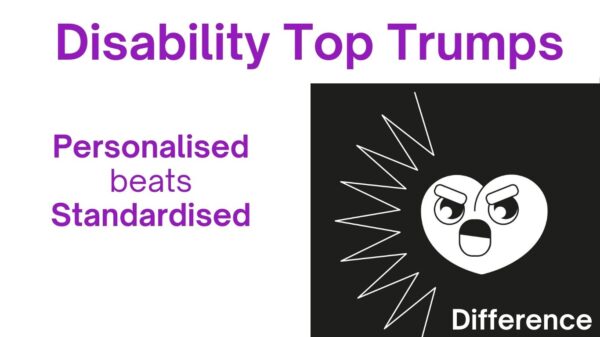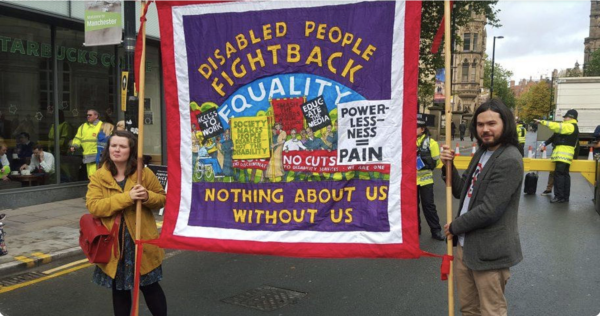It is Disability History Month and the UK theme this year is Health and Wellbeing. Difference Campaigns and Events Officer, Nic, talks about how we look after our own wellbeing whilst campaigning.
Disability Activism
We know that activism can often lead to exhaustion and burnout- especially when we come up against systems and cultures that are against us. We have been taking part in campaign training with Inclusion London which has got us thinking about how and why, we do what we do.
Now, ‘burnout’ refers to a state of mental and physical exhaustion usually caused by ongoing stresses.
If you’re an activist of any kind, it goes without saying that you care passionately about your cause. If you’re a disability activist, it is probably because you identify as Disabled. This means that you likely have lived experience of discrimination and its negative impact on your life, including your health and wellbeing. When you’re Disabled, you’ve had to be an advocate for yourself at some point- we have no choice! We use our knowledge and experience to inform our campaigns, and this can sometimes be physically and emotionally draining.

The rights that we as a Disabled community currently enjoy, and I use the word ‘enjoy’ lightly, have been fought for by Disability Rights activists. Disabled activists and campaigners face larger-scale threats that make organised activism a necessity. Threats to our Rights from Government policies constantly loom and need battling against. Budget cuts threaten vital supports like health and social care. City Planning processes often overlooks our access needs.
Burning up, not Burning Out
Burnout from activism and campaigning can have a negative impact on individuals but also on organisations. And when this happens, it threatens Disability Rights activism itself. People get stressed, they get sick, they stop ‘doing the work’, because they can’t do it anymore. I’m often juggling lots of different things. These ‘things’ could quite literally be anything to do with our work. Disabled Peoples Organisations (DPO’s) are notoriously underfunded. This means that we are usually working with very limited resources, including the people power needed to get stuff done. Mostly, this is exciting and interesting to me, as a person who often gets distracted easily or finds it easier to work on small ‘chunks’ of tasks, and with support at times.

I’m lucky at Difference. As an organisation we take time to recognise our small achievements. We build relationships with others who want to fight discrimination and make the world a better place for Disabled people. And we recognise our limits as a tiny organisation fighting big fights.
Disability activism is also a community. It’s one of the few places where Disabled people can collaborate, influence and socialise. as Andrew Pulrang writes, here, ‘while the purpose of disability activism isn’t to make us feel connected and supported, at its best, activism can give us community.’
We are looking forward to upping our activism game and putting our new learning into practice in the coming year. We encourage you to join us as a member or an ally and help us keep burning up, and not burning out.

